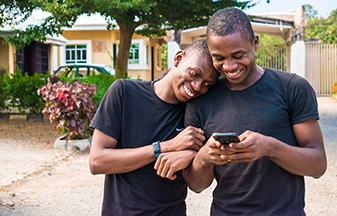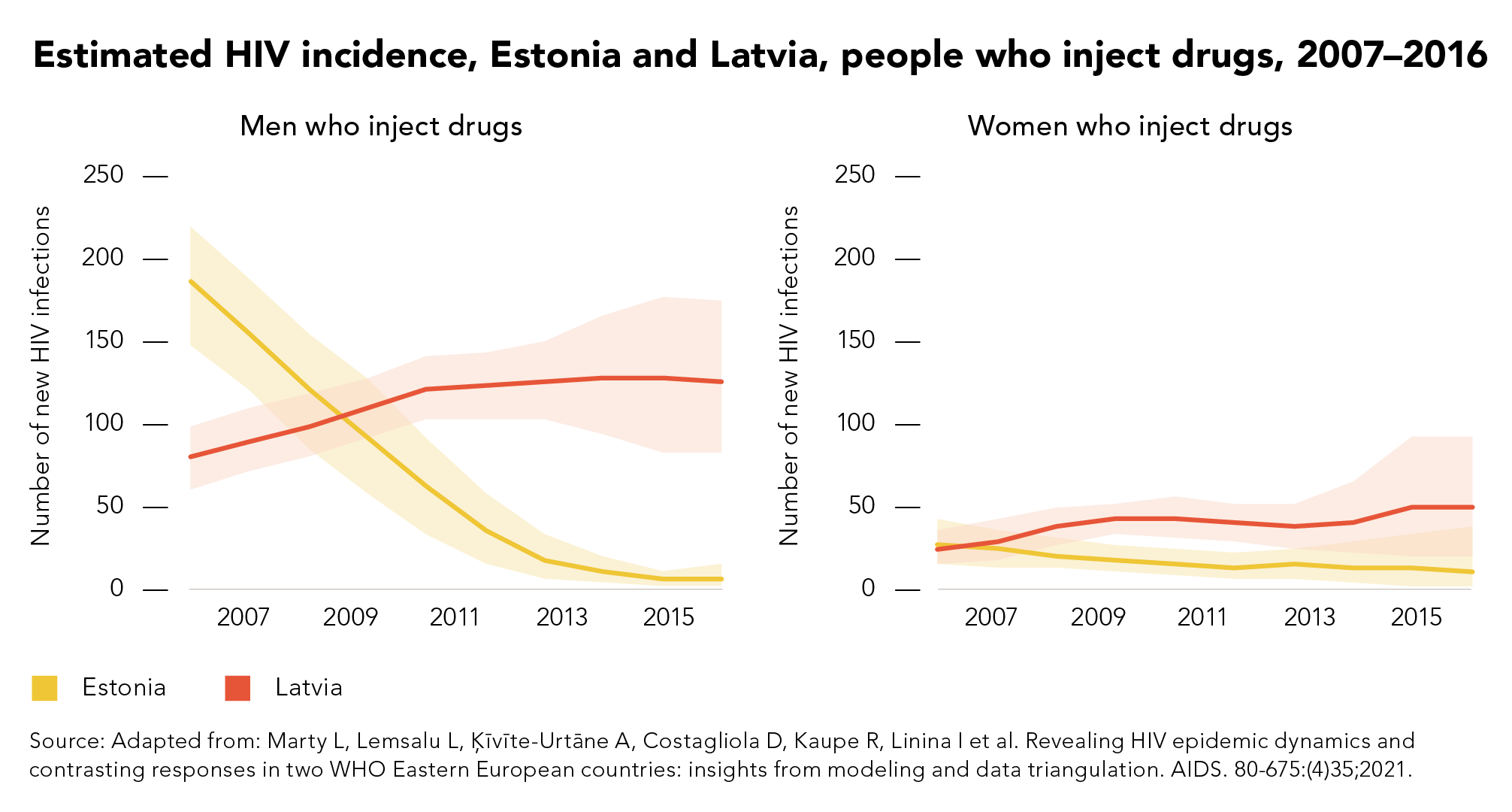The start of the Ukrainian war fifty days ago surprised many people including Berliner Aids-Hilfe’s migration consultant. Sergiu Grimalschi, along with his colleagues, has been thrust at the forefront of helping thousands of Ukrainian refugees coming to Germany, primarily those living with HIV.
Mr Grimalschi, a professional interpreter, came to Berlin from Romania in the early 1990s. For the past twenty-five years, he has been working on the HIV response primarily with migrants and is currently employed by Germany’s oldest HIV organization. From 2006 to 2012 he helped countries in Eastern Europe and Central Asia (EECA) develop HIV health services and worked in Ukraine, Belarus, Russia, and Poland.
UNAIDS spoke with Mr Grimalschi about the challenges Ukrainian refugees living with HIV face in Berlin.
Question: Sergiu, many refugees living with HIV in Germany are now coming to you directly. Were you able to prepare for this ahead of time?
Answer: No. No one was prepared and, to be honest, the war was a complete surprise for us, and for me personally. Eastern Europe has been a priority for my organization since 2010. We all speak eastern European languages and have stayed informed about the situation in the region. So, when the war started, I did a simple thing that turned out to be decisive. I wrote one mass email to an EECA group saying that anyone living with HIV fleeing from the war to Germany could contact me or my colleague by phone. First, I got called by colleagues from Moldova, with whom I worked closely during the COVID-19 pandemic when we provided medicines to people stuck in Europe. Then various Ukrainian organizations started contacting me. They continued to share my email and within a week the Berliner Aids-Hilfe numbers were on all social networks and on all Telegram channels.
Question: Many refugees living with HIV fled to Europe, in particular Germany, because they believed that everyone here has access to HIV treatment and services. True or false?
Answer: Yes, everyone has access except migrants without health insurance. That has changed only recently.
In Berlin, for example, every person, including undocumented and uninsured migrants could access treatment but only since the end of 2018.
All this was due to the fact that people without health insurance in Germany cannot be treated, and the law does not take into account people without insurance. And, as you know, if you cannot be treated, you die. Since 2000, we focused on all possible ways to provide all people living with HIV without insurance with access to medicines and qualified medical treatment.
Addressing this issue was the most difficult and the most important task for us in many years, but we managed to solve it. And that is thanks to many years of advocacy work that we did.
Question: So tell us how you deal with influx of refugees in Germany?
Answer: It is still not so simple. Firstly, the situation is very different in different states (landers) of Germany.
Secondly, when the first refugees began to arrive, there were no really organized structures, so we had to improvise with colleagues across the country. One bad thing was for example that Ukrainian people fleeing their homes were advised to leave medicines for those who stayed in Ukraine. In the first days of the war, medicines were collected throughout Germany in order to send them to Ukraine or Poland. But after one week, a lot of people living with HIV from Ukraine were in Berlin. A few women came to me saying, ‘I have only 2 or 3 pills because I gave everything to my husband.’
We had to find an urgent solution.
We went to doctors in Berlin and found stockpiles of HIV treatment but then we ran out. Doctors wrote out prescriptions, but it was not clear how they would be covered or paid for. Only Dolutegravir, for example, which is a part of the treatment that a majority of Ukrainians living with HIV take, costs more than 700 euros here. But everyone made extra efforts– doctors, social workers, other people living with HIV – they said, 'There is a war going on.’ And eventually the German health authorities began gradually to cover treatment costs.
Many people who arrive from Ukraine still do not understand how one gets treatment in Germany. There are no big specialized centers that dispense medicine here. I explain to people: ‘we help you to get an HIV-specialized doctor in your region who gives you a prescription and then you can go to the pharmacy and get your medicine.’
In recent weeks, onlly some of the 16 German regions have been treating people without insurance, without registration, based only on the person’s passport. For the past two weeks in Berlin, doctors have been authorized to treat Ukrainian refugees just by providing photocopies of their passport and sending it to the social services to get reimbursed. A real show of human solidarity.
Question: How many people are currently receiving antiretroviral therapy in Berlin?
Answer: At the moment, about 600 Ukrainians living with HIV are in contact with me throughout Germany and 150 in Berlin. Overall, I would say about 2,000 people total but not everyone has asked for help yet because they have enough medicine.
Question: Sergiu, tell us how the war started for you?
Answer: When my mother called me from Romania on the morning of February 24 and said, ‘the war has begun,’ I asked her, ‘Mom, did you sleep badly? Stop!’ I thought she had a bad dream. I never thought that Russia would go ahead with the invasion of Ukraine.
Personally, I am very connected to Eastern Europe. My grandmother left Russia in 1918, my grandfather was from Chernivtsi, which means that theoretically, he could have been Ukrainian if he had not left in 1940. I have a lot of very good friends, relatives, and colleagues with whom I worked there so this is terribly painful for me.
Question: Sergiu, as I understand it, you not only help refugees with treatment but also help out with housing and other things?
Answer: Yes, of course, we help with the refugee registration and access to social aid services, health insurance, psychological support in their language and everything that they need. We also advise people against going to the countryside. It is better for people living with HIV or who need substitution therapy to stay in Berlin or other big cities, because there are better health facilities.
I and my colleagues and friends try to help people with accommodation and clothing. I have a friend, a Romanian doctor, whose house was empty. I asked her if she wanted to help. Now six Ukrainian families live in her house. Another German friend gave 2,500 euros to women from Ukraine for urgent needs. Of course, I am accountable for all this money, but this is a personal, private initiative. One of my friends, a lawyer, bought iPads for many refugee children. He says children need to study so now they can go online.
Question: Amazing work Sergiu... What keeps you going?
Answer: I am impressed by all this human solidarity and I hope that all this horror will end shortly...This is a big test for all of us.




